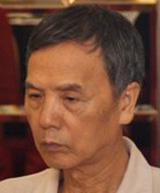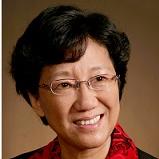Despite deep differences in the area of security in Asia and the world at large, China and the United States have managed to make remarkable progress in military exchanges since early 2011 after a nearly one-year suspension in 2010 in the wake of US arms sales to Taiwan. With the joint efforts of both countries, the last three and a half years have witnessed a considerable increase in dialogues between military leaders of the two countries and exchanges between the two armies. New ground has been broken such as US Secretary of Defense Chuck Hagel’s visit to China and the participation of the Chinese People’s Liberation Army naval vessels in the 2014 RIMPAC exercises. The Defense Ministry of China and the US Department of Defense held dialogues and consultations on security and defense affairs on a regular basis, with new problems and challenges being dealt with in a timely manner. The increasing dialogues and military exchanges between the Chinese and US armed forces are viewed as an essential component towards building the new type of great power relations between China and the US, and have become a particularly important factor in building up mutual political trust between the two countries.
Military leaders of both China and the US have a strong desire to expand military exchanges, which deserves unhesitating support. According to recent news reports on the chief of US naval operations Admiral Jonathan Grennert’s visit to China, there is interest in the US aircraft carrier George Washington paying a visit to China. In turn, many in the US are interested in China’s first aircraft carrier, the Liaoning, paying a return visit to the US in due course. The exchange of visits of aircraft carriers would create another first in the annals of Sino-US military exchanges, and certainly has special significance in increasing mutual understanding and trust in order to avoid strategic misjudgments.
However, a few US observers and the media are calculating whether China or the US would benefit more from this kind of exchange while finding no reason to reject it. These analysts tend to believe that China would gain more than the US. In fact, such conclusions cannot hold water. Though an exchange of visits by aircraft carriers is new, other exchanges surrounding aircraft carriers between China and the US are nothing new at all. Chinese servicemen have been aboard US aircraft carriers on a number of occasions, and US military leaders and officers have visited China’s only aircraft carrier more than once. Therefore, it is a very logical development that Chinese and US naval officers have started to discuss the exchange of visits of aircraft carriers, which surely benefits both sides. It is obvious that with more new exchange programs worked out and implemented, the Chinese and US military leaders would have more knowledge of each other’s strategic intentions and become more familiar with each other through joint drills and exercises; ultimately boosting military-to-military relations. Suspicions about each other’s military development would be gradually reduced. Furthermore, some of the current disputes and differences between the two sides could be negotiated and resolved in a pragmatic and friendly manner.
When we recognize that the expansion of Sino-US military exchanges plays a particularly vital role in building up mutual strategic trust, we have to admit that such expansion is still fragile. In a certain sense, mutual strategic trust is lacking a solid basis due to the fact that some major obstacles remain in the way of building of a new type of Sino-US military relations. In order to prevent any possible disruption of the continuing expansion of military exchanges, both sides need to work together in order to carefully handle and control the disputes or differences. At present, how successfully China and the US could deal with the disputes or differences will inevitably have great impact on the expansion of military exchanges and also on the overall relations between the two countries. Moreover, no one can deny that despite recent progress, the status quo of military exchanges is still at a very low level. Besides, the lack of cooperation in the area of military equipment and technologies, as well as the trade of military products remains. This is the direct result of the United States’ political misjudgment of China. To build a new type of great power relations between China and the US for the sake of the world peace and the happiness of the Chinese and American peoples, it is essential for US political leaders to change their Cold War mentality and zero-sum game logic. Instead, China must be treated as a trusted partner rather than an adversary or rival. Supporting the sustained and smooth expansion of Sino-US military exchanges by US decision makers should become an important concrete action to demonstrate to the whole world the repeatedly announced commitment that the US is not, nor has any intention, to contain China.
Wu Zurong is a research fellow at the China Foundation for International Studies.

